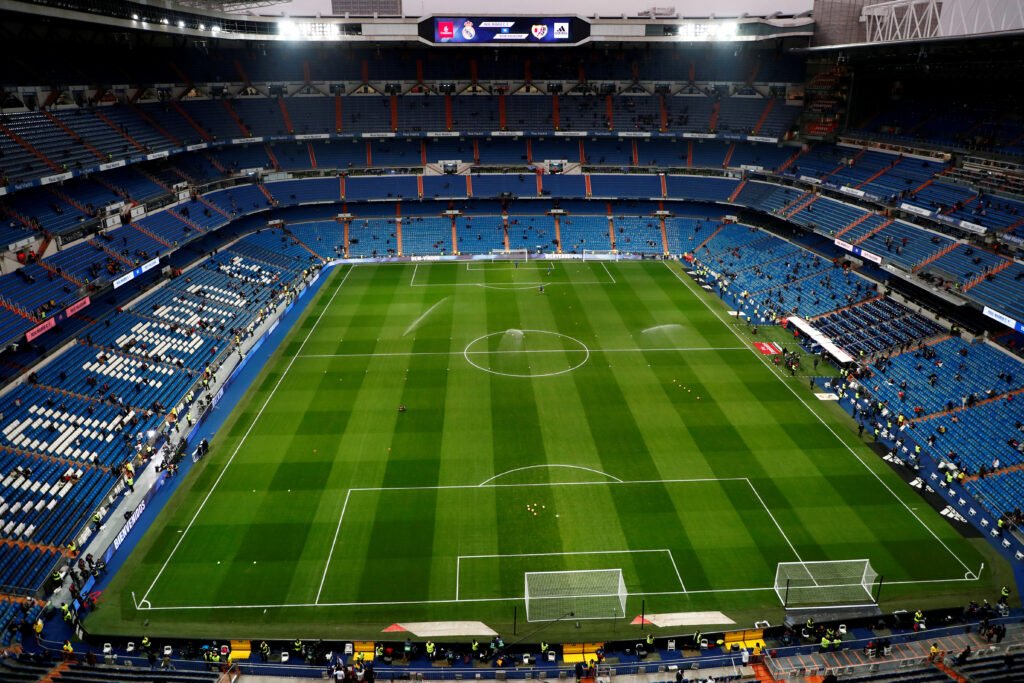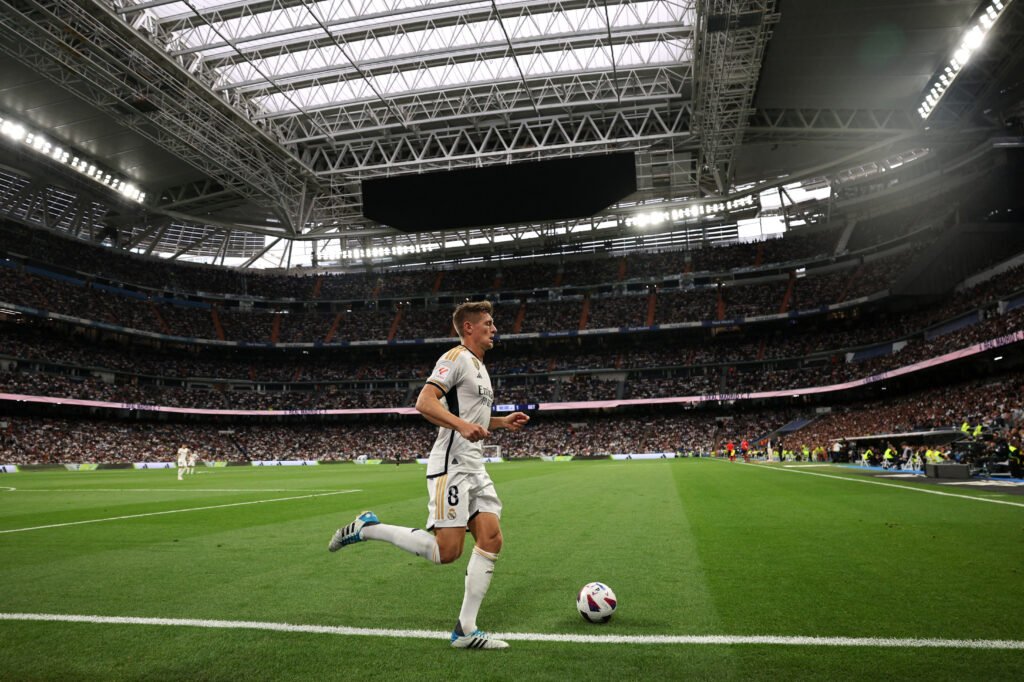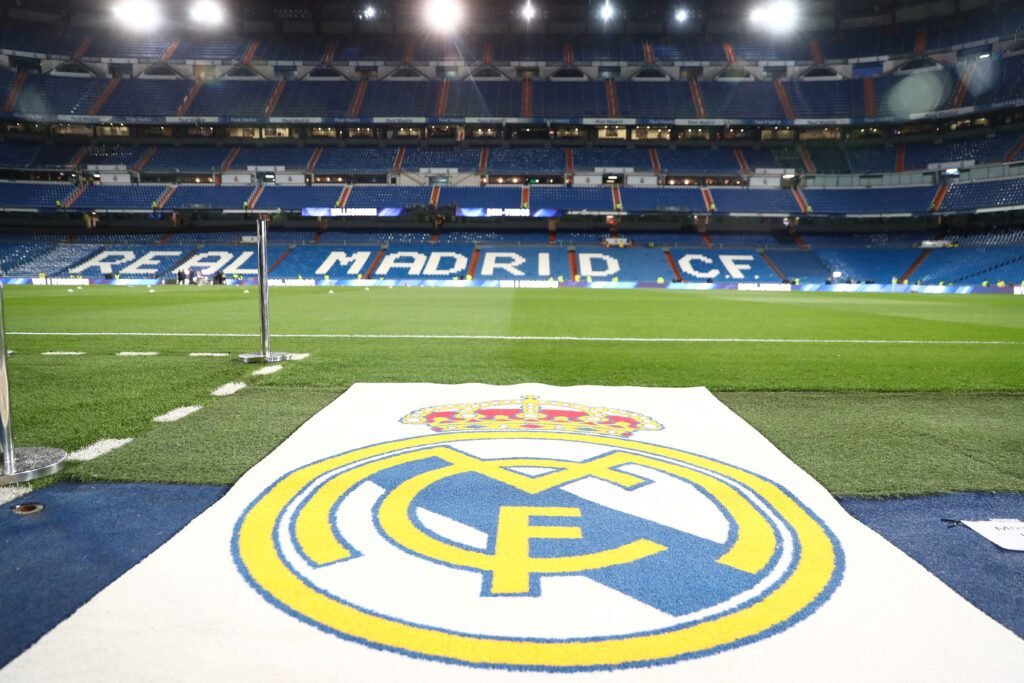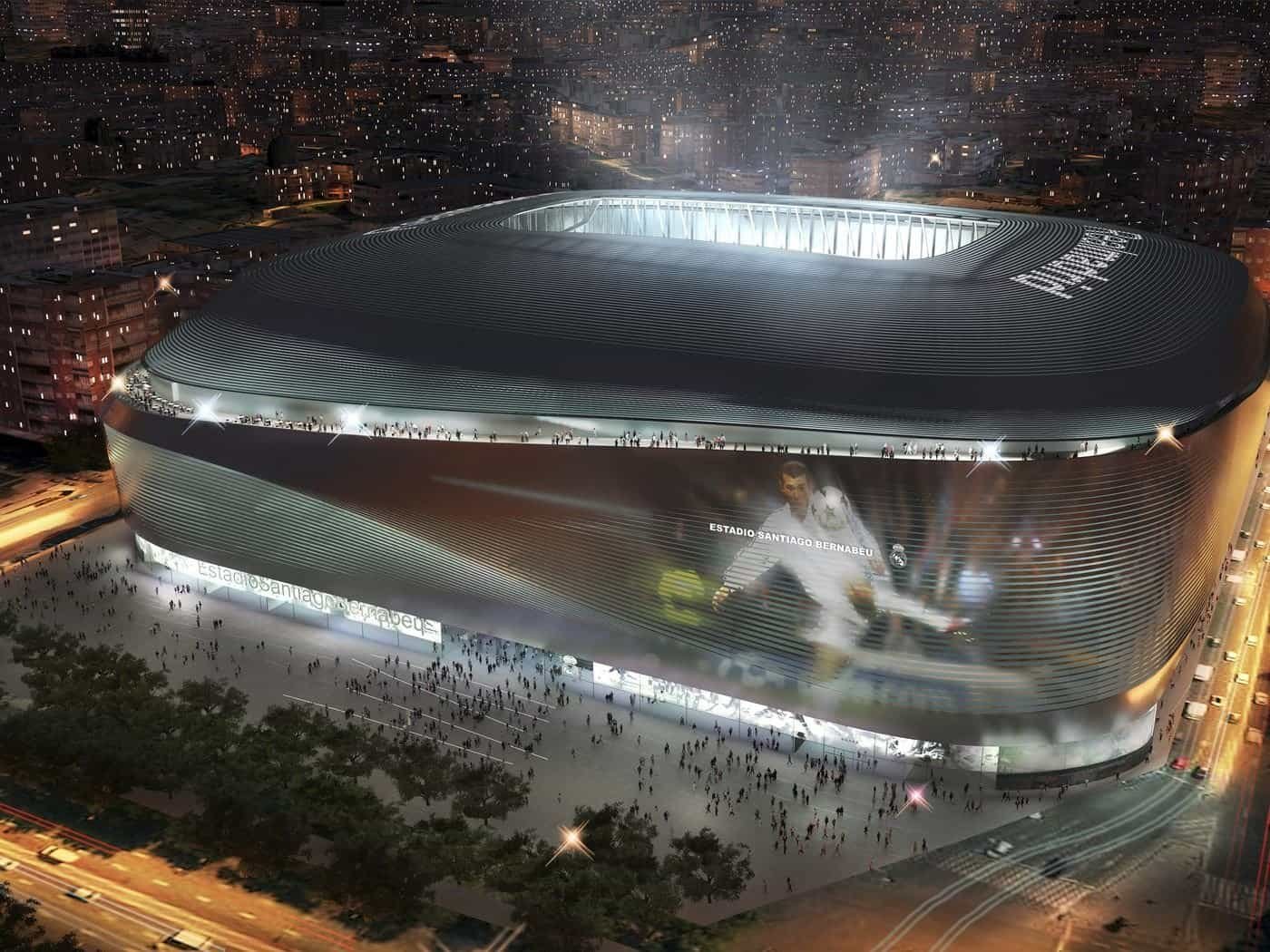The transformation of the new Bernabéu marks a significant shift for Real Madrid, akin to the impact of constructing the old Chamartín in the northern axis of the capital or later adopting the galacticos policy under Florentino. In each instance, it served as a catalyst for increased income and, consequently, financial prowess, solidifying the club’s leadership.

The timing of the new Bernabéu is particularly crucial as it aligns with the ongoing competition against state-owned clubs and wealthy entities. With the inauguration of the new Bernabéu, the club is poised to surpass the symbolic 1 billion euros in revenue by the year-end, a remarkable milestone that sets it apart significantly from the financial achievements of other top-tier clubs.
Read More: JUAN SOTO SMASHES MLB RECORD WITH $31 MILLION DEAL AS YANKEES STEER CLEAR OF ARBITRATION
Real Madrid’s Income Surge and Strategic Investments in the New Bernabéu Project
In the recently concluded 2022-23 season, Real Madrid proudly announced a staggering income of 831 million euros, securing its position atop the European ranking. Breaking down this substantial figure reveals key contributors: 1) 152 million from membership fees, season tickets, and stadium-related revenue; 2) 136 million generated through friendlies (summer tours) and competitions, with a focus on the Champions League; 3) 186 million from television rights; and 4) a significant 329 million from marketing and sponsors.
Anticipating an even more prosperous future with the new stadium, the club’s official budget forecasts a remarkable increase in stadium-related income. Projections indicate a rise from the current 152 million to an expected 318 million, marking a notable surge of 166 million. This boost is not only attributed to enhanced stadium operations but also positions the new Bernabéu as an enticing attraction for potential sponsors seeking to align their brand with the prestige of Madrid.

In totality, the additional 166 million, when combined with the existing 831 million, propels the club’s total income close to the coveted one-thousand-million-euro mark, reaching a formidable figure of 997 million.
Real Madrid’s unwavering commitment to the new Bernabéu is evident in their substantial financial investment. The total cost of the project is set to reach a minimum of 1,160 million euros, a significant sum that the club has sought from financial institutions to fund the extensive redevelopment. The financial strategy involves securing loans for the project, with the first loan amounting to 575 million euros, formalized in 2019. This loan, granted for a duration of 30 years at a fixed interest rate of 2.5%, necessitates an annual repayment of 29.5 million euros until the year 2049.
In 2021, an additional loan request of 225 million euros was made, specifically designated for financing the construction of the greenhouse in the stadium’s basement. This facility is crucial for implementing Florentino Pérez’s plans, allowing the removal of the grass to accommodate various events. The terms of this loan include a 27-year repayment period and a notably favorable fixed interest rate of 1.53%.
Recently, Real Madrid sought another substantial loan, this time amounting to 360 million euros. In total, the club has requested 1,160 million euros for the mega-project. However, it’s important to note that the total amount to be repaid, including interest, is anticipated to surpass 1,600 million euros.
Real Madrid’s Profitable Partnership with Sixth Street and Legends in the New Santiago Bernabéu Era
Real Madrid has strategically turned the new Bernabéu project into a profitable venture, evident in the groundbreaking agreement announced in May 2022 with giants Sixth Street and Legends. The club secured a substantial sum of 360 million euros through this deal. As outlined in the official statement, “Sixth Street acquires the right to participate in the exploitation of certain new stadium businesses for a period of twenty years.” Simultaneously, Legends brings its extensive experience and expertise in managing large stadiums and leisure centers to the table, aiming to optimize the overall operation of the Bernabéu.

Effectively, Real Madrid has divested 30% of the operating business of the Bernabéu for the next two decades, showcasing a forward-thinking approach to financing and partnership. This move has not only facilitated advanced collection but has also marked an early success in making the project financially rewarding even amid the ongoing construction phase.
The collaboration with Sixth Street and Legends not only injects substantial capital into the project but also positions the club for further financial success in the coming years. As construction progresses, the potential for additional gains and enhanced stadium operations suggests that the best is yet to come for Real Madrid and the new Bernabéu.


